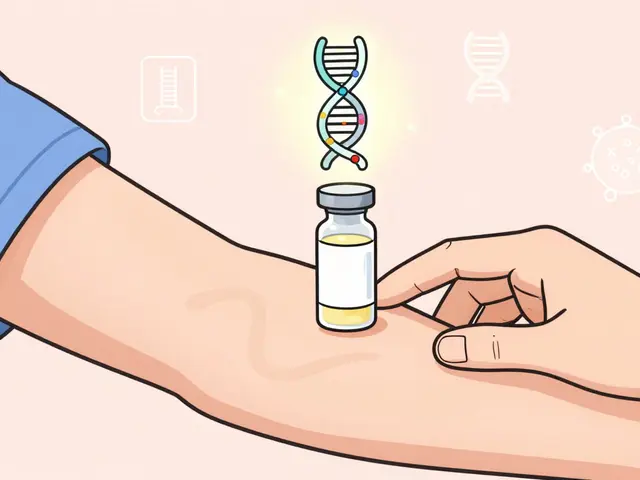Cognition: Practical Tips, Meds, Sleep, and Supplements
Feeling forgetful or foggy isn't just "getting older" — in many cases you can improve focus, memory, and mental clarity with small changes. This tag collects clear, practical articles on drugs, supplements, sleep, nutrition, and safe medication use that affect thinking and memory.
You will find guides that explain how common medications influence cognition. Read the Ativan article for plain language on how lorazepam affects anxiety and mental sharpness, what side effects to expect, and how to use it safely. There is also a piece about taking Lyrica with Zoloft that walks through risks, signs to watch for, and why your doctor might need to adjust doses.
Sleep matters for thinking. Our post about sleep disorders among college students shows how poor sleep harms learning and memory. It also gives concrete steps students can try tonight: set a consistent wake time, cut late caffeine, and keep screens out of bed to help restart natural sleep cycles.
Supplements and nutrients are covered with balanced advice. The zinc article explains signs of deficiency, good food sources, and how zinc may support attention and immune health. You will also find features on herbal supplements like Tronadora and Alder Buckthorn that explain claimed benefits, possible risks, and when to discuss them with a clinician.
Many cognition problems come from medication interactions or the wrong dose. Use our guides on drug alternatives and interactions to check whether a prescribed drug could be the cause of brain fog. For example, posts about alternatives to common antibiotics and statins help readers compare options when side effects are a concern.
Practical, short actions you can try now: improve sleep, add zinc-rich foods like oysters or pumpkin seeds if your diet is low, move for thirty minutes most days to boost blood flow to the brain, and keep alcohol use moderate. If a medication seems to worsen concentration, talk to your prescriber before stopping it. Bring a current medication list to appointments so interactions can be checked.
If you want quick reads, use the tag list to jump to focused articles on anxiety meds, sleep, supplements, and safe online pharmacies. Each article gives plain advice, risks, and red flags to watch. We try to focus on what works and what to avoid, without medical nonsense.
Got a question about something you read here? Use our Contact page to send a message and include the article title and your main concern. For anything that affects daily function or safety, schedule a visit with a health professional—this tag helps you prepare smart questions and understand answers.
We also cover practical shopping tips for medications when needed. Several posts explain how to spot unsafe online pharmacies, how to verify prescriptions, and what to do if a site asks for strange payment or shipping. If you're comparing supplements, check ingredient lists and third-party testing notes mentioned in our reviews. Bookmark this tag and check back — we update articles when safety warnings or new evidence appears regularly.
In my recent exploration of the connection between health and cognitive abilities, I've discovered that parasitic infections can have a significant impact on our mental performance and cognition. These infections, often caused by organisms like protozoa, helminths, and ectoparasites, can lead to cognitive decline and even hinder our ability to learn and think clearly. In some cases, these parasites can even cause severe neurological complications. As I delved deeper into this topic, I realized the importance of being aware of these potential risks and taking preventative measures to protect our cognitive health. Stay tuned for more information about how to safeguard your mental well-being from the effects of parasitic infections.





